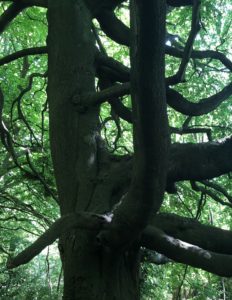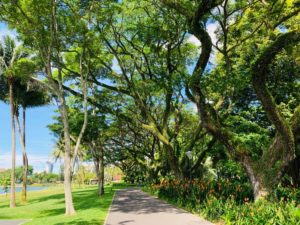“There is an art to combining your beginners and experienced mind that will enable you to be successful in your chosen endeavors, as well as derive more pleasure and enjoyment from them”
 Dear Integral Meditators,
Dear Integral Meditators,
As we sit in between the Western new year and the Chinese Lunar year, it can be an interesting time to cultivate our beginners mind, in balance with our experienced mind. The article below offers a few practical ways to start!
The Wednesday classes this week will be on the subject of the article, and the next Beginners Meditation Workshop is on Saturday the 18th.
In the spirit of the journey,
Toby
 Songs of Innocence and Experience – Combining your beginners mind with your wise mind
Songs of Innocence and Experience – Combining your beginners mind with your wise mind
Your beginners mind (BM) is your ability to come to a task or experience with curiosity, as if for the first time. It may be an experience that you have had many times before, or you may literally be doing it for the first time. Either way your beginners mind is a learning mindset. It watches closely, absorbing as much information as it can. Think of a child intensely interested and involved in trying to ride a bike for the first time, and you get the idea. Your BM is happy to try and fail, try and fail, try and fail, until it succeeds.
Your beginners mind helps you to keep on learning as you get older, keep your enthusiasm for life, keep you positively humble. Your BM helps you learn new things faster, and prevents you taking familiar good things in your life for granted. Mentally it keeps you young, flexible and joyful.
The beginners mind should not be confused with simply being naïve, childish, or getting bored easily and so giving up on tasks before they are done or mastered!
Your experienced mind (EM) is the sum total of all your life experience up to this point. It knows a lot of things that are very useful in helping you navigate all the situations and choices that you have to go through each day. You might think of it as the wise old man or woman within you that compares what is happening in the moment to the past in order to see if there are any patterns, experiences or learning’s that you already have that can help you with what you are facing right now.
Your EM helps you to leverage on what you know already in order to prevent you making mistakes. It saves you time, helps avoid pain, and enjoy greater success with regard to what you are experiencing in the moment. It recognizes that in many situations we are not complete beginners, and that that is a very good thing!
Your experienced mind should not be confused with that part of you that becomes cynical, jaded, or that thinks it ‘knows it all’. It is intelligent, helpful and alert.
Integrating your beginners and your experienced mindsets
From an integral mindfulness point of view, we try to combine the best of our beginner’s mind and experienced mind together, so they are helping each other, and us to meet our life challenges more successfully. One simple way to start doing this is to ask two questions regarding any challenge you have, and want to extract practical learning from:
- If I view this situation as if for the first time, what do I see and observe?
- What is my past experience and learning telling me about this situation?
Sit with each question for a short while, and see what perspectives and insights come from both. You can then combine them into a wise approach to your experience that combines your ability to learn in the moment (beginners mind) with your ability to use past experience effectively (experienced mind).
A simple example
Forty minutes ago I sat down to write this article. I felt a bit nervous and unsure about the content, but my experienced mind (EM) told me that if I just started mapping it out and writing, I would find the idea translated into an article. I then set aside my EM and brought my BM to the task, seeing the content ‘as if for the first time, paying attention to the present, being curious and enthusiastic. Now here I am, at the end of my article, my work complete. It’s a simple example. How could you combine your beginners and experienced mind today in order to be successful in your chosen endeavor?
Click here to listen to a 20 minute beginners mind meditation that I recently recorded.
Related article: Appreciating the past to liberate the present
Integral Meditation Asia
Online Courses * 1:1 Coaching * Books * Live Workshops * Corporate Mindfulness Training *Life-Coaching * Meditation Technology

 Allowing & Participating – Rethinking ‘being in control’
Allowing & Participating – Rethinking ‘being in control’






